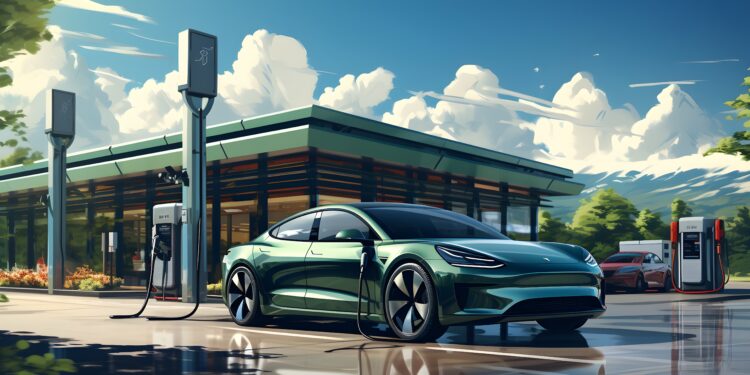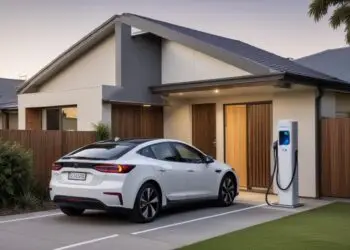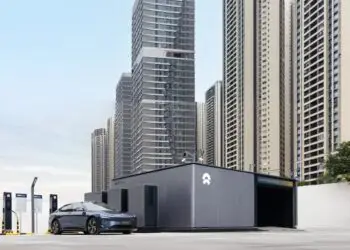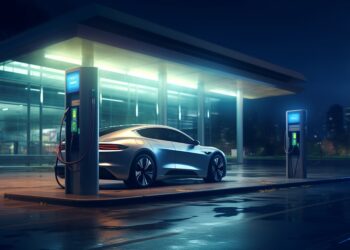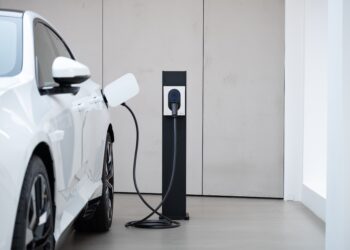Foodstuffs, New Zealand’s largest grocery cooperative, and ChargeNet, the country’s leading provider of EV charging solutions, have announced a groundbreaking partnership to significantly expand the nation’s electric vehicle (EV) charging infrastructure. This collaboration aims to make charging more accessible and convenient for EV drivers across New Zealand, aligning with the nation’s sustainability goals.
Driving Sustainable Change
Foodstuffs have been a cornerstone of New Zealand’s grocery sector for over a century, consistently supporting local communities and promoting sustainable practices. This partnership with ChargeNet underscores their commitment to environmental stewardship.
By integrating EV charging stations across their retail locations, Foodstuffs supports the growing EV market and encourages more Kiwis to consider electric vehicles as a viable option.
A Long-Standing Partnership
ChargeNet began working with Foodstuffs back in 2015, installing charging sites at the cooperative’s PAK’nSAVE and New World stores. This long-term collaboration currently offers customers access to 128 ChargeNet charging points nationwide. These charging points have provided more than 7,731 MWh of energy, enough power for an EV to circumnavigate the earth 850 times. This impressive milestone highlights the impact and success of their ongoing partnership.
Expanding Accessibility
The new phase of their partnership will see ChargeNet install at least 80 new charging hubs at select Foodstuffs supermarket locations.
The first of these hubs will be a six-point charging station in Kaikōura, a popular tourist destination on the South Island’s east coast. This strategic placement ensures EV drivers can conveniently charge their vehicles while shopping, making the transition to electric vehicles more seamless and practical.
Steve Anderson, CEO of Foodstuffs South Island, expressed enthusiasm about the collaboration, stating, “By partnering with ChargeNet to open at least 80 new charging sites at our stores around the country, we’re also supporting our broader goals of being a positive force for New Zealand and promoting sustainable practices.”
ChargeNet’s CEO, Danusia Wypych, echoed these sentiments, highlighting the importance of such partnerships in driving EV adoption. “Collaborating with Foodstuffs aligns perfectly with our goal of making charging simple and accessible for EV drivers nationwide. By leveraging Foodstuffs’ extensive network of supermarkets, we can significantly expand our charging infrastructure and provide a seamless charging experience for EV owners.”
At Evoltronic, we believe that initiatives like the Foodstuffs-ChargeNet partnership play a crucial role in supporting the adoption of EVs by providing the necessary charging infrastructure and making it more convenient for New Zealanders to transition to sustainable transportation options. This collaboration between Foodstuffs and ChargeNet exemplifies the proactive steps being taken to ensure New Zealand’s transportation sector is sustainable, accessible, and ready for the future.
About Foodstuffs
Foodstuffs is a 100% New Zealand-owned and operated cooperative, with over 200 stores across the South Island and 300 stores in the North Island. and operates iconic brands such as New World, PAK’nSAVE, and Four Square.
About ChargeNet
ChargeNet is New Zealand’s leading provider of EV charging solutions, with a nationwide network of charging points. The company’s goal is to make charging simple and accessible, enabling EV drivers to travel the country with confidence and convenience. ChargeNet has cultivated collaborative partnerships to grow New Zealand’s EV charging infrastructure.
Electric Vehicle Industry in New Zealand
The EV industry in New Zealand is rapidly growing, driven by increasing environmental awareness and government incentives to reduce carbon emissions. As of April 2024, there are approximately 74,600 fully electric light vehicles and nearly 32,000 plug-in hybrids on New Zealand roads.
While the EV market experienced a slump in the first quarter of 2024, with sales dropping to around 4% of total light vehicle sales, analysts attribute this decline to political factors and the broader economic slowdown.
However, the long-term outlook for the EV industry remains positive, with increasing awareness of environmental concerns and the availability of more affordable EV models expected to drive growth in the coming years.


